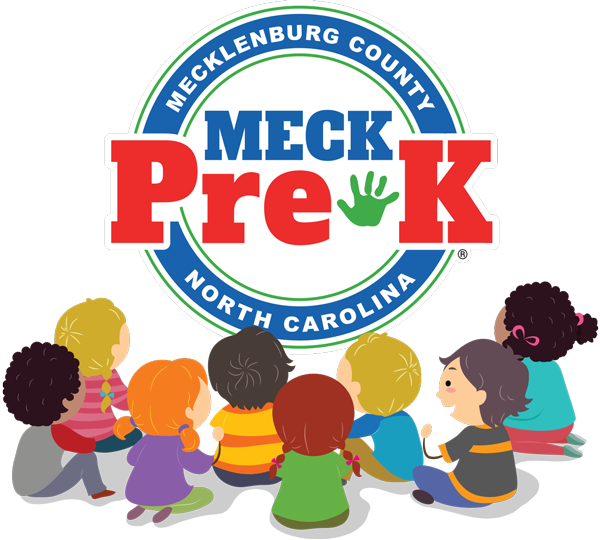MECK Pre-K Blog
MECK Pre-K Blog
Welcome to the MECK Pre-K Blog.
Check back regularly for relevant information on MECK Pre-K and Early Education.
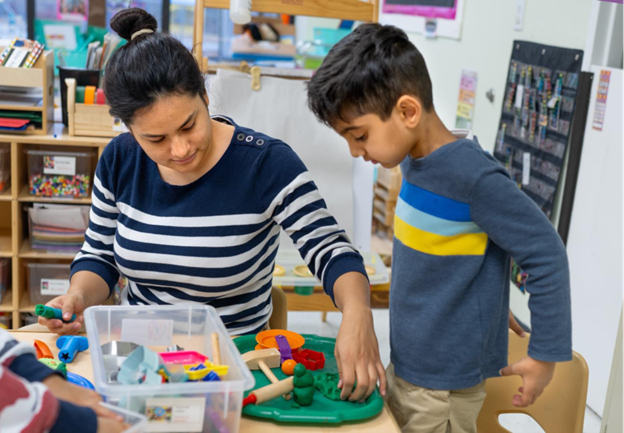
Parent Involvement in Pre-K: How You Can Stay Engaged and Make a Difference
A child’s pre-K experience doesn’t stop at the classroom door. When families stay engaged, children benefit from stronger relationships, greater confidence, and a more consistent learning experience. At MECK Pre-K, parent and caregiver involvement is seen as a partnership — one that supports children’s growth now and sets the foundation for continued engagement as they move through school.
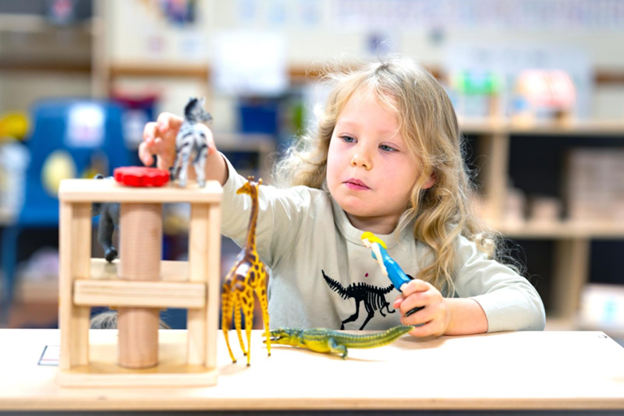
Hands-On Learning in Action: What Your Child Experiences at MECK Pre-K
At MECK Pre-K, children learn best by doing. That’s why hands-on learning is at the center of each day — from exploring materials during center time to asking questions, creating, building, and discovering alongside classmates and teachers.

Keeping a Routine During Winter Break: Why It Matters for Pre-K Kids
Winter break is a special time — slower mornings, cozy days at home, family fun, and holiday excitement. But for young children, the sudden change in pace can feel big. Keeping a simple, predictable routine over break helps Pre-K students feel safe, confident, and ready to jump back into learning when school returns.

Winter Break Learning: Simple, Fun Activities to Stay Sharp
Winter break is a wonderful time for children to rest, play, and recharge — but it’s also a golden opportunity to keep little minds active, curious, and growing. At MECK Pre-K, we believe learning doesn’t take a holiday. Below are simple, joyful activities families can enjoy together that reinforce early learning skills, foster creativity, and help children return to school ready to learn.
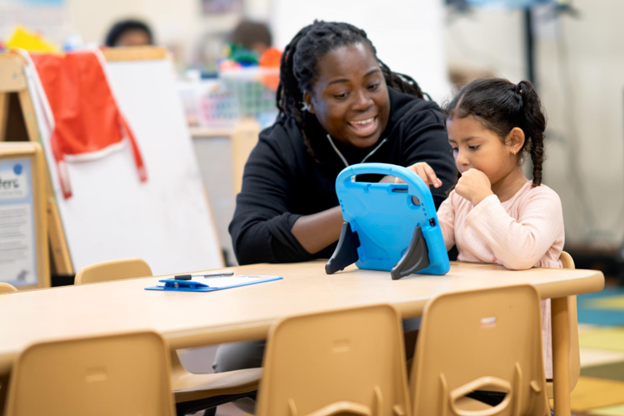
What Makes a Great Pre-K Teacher? Qualities That Matter Most
Every child deserves a teacher who sees potential, guides growth, and nurtures curiosity day after day. In pre-K, those early years are full of wonder, discovery, and big emotions. Pre-K teachers don’t just teach lessons; they shape how children see themselves, how they connect with others, and how they begin a lifelong love of learning.
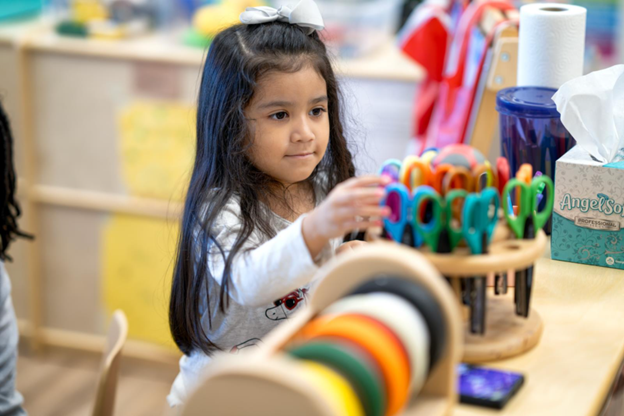
The Role of Music and Art in Pre-K Learning
When children explore music and art, they’re doing much more than having fun with paintbrushes and tambourines—they’re building important skills that support learning in every area. Creative expression helps young children develop communication skills, confidence, and the ability to think in new and flexible ways.
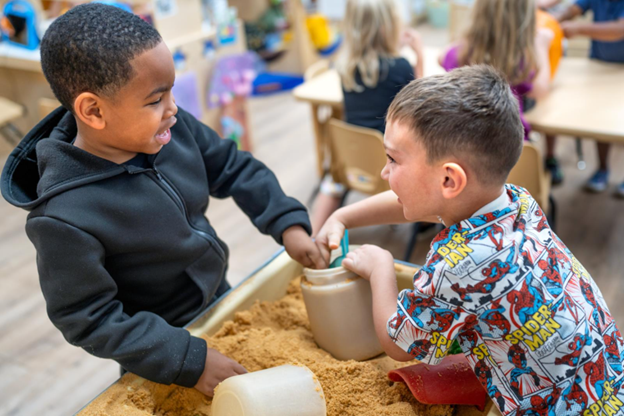
Measuring Growth in MECK Pre-K: 2025 Update
There are many ways to observe a child’s growth during the pre-K years. So much is happening for them intellectually, socially and emotionally, it’s almost like seeing a new child emerge every day! As they mature, a pre-K student may develop a broader vocabulary, begin to understand basic math, become more observant about the world around them, make friends, learn problem-solving skills, and so much more.
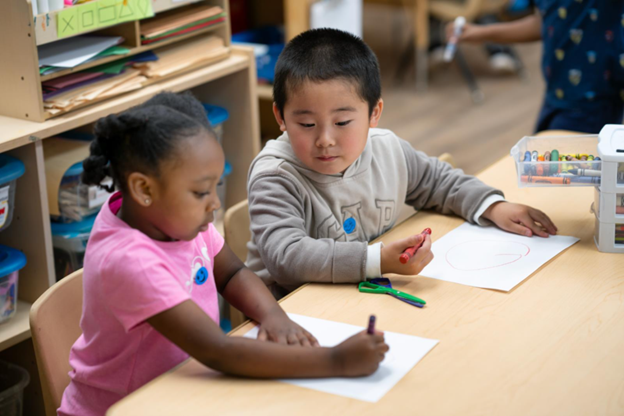
How Pre-K Shapes Problem-Solving and Decision-Making Skills
By age four, children’s brains are undergoing extraordinary growth. In fact, about 90% of the brain’s structure is in place by age five, and the circuits for thinking, planning, and self-control are especially active. That makes the pre-K years a powerful window for building skills that help children solve problems and make good decisions now and in the future.
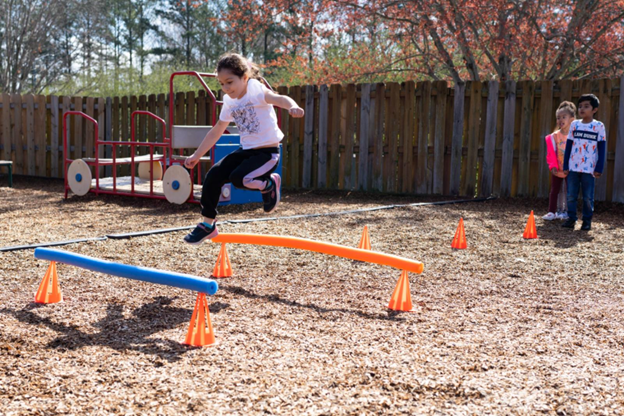
Nutrition and Healthy Habits in Pre-K: Setting the Foundation for Lifelong Wellness
Good nutrition and healthy habits in the earliest years are about more than growing strong bodies—they also support learning, focus, and long-term well-being. Research published by the National Library of Medicine shows that habits formed in early childhood can influence lifelong health outcomes, from diet quality to risk of chronic disease. Pre-K is a powerful time to set this foundation.

Building Language Skills in Pre-K: Tips for Parents to Encourage Early Literacy at Home
Language is the foundation of learning. When young children build strong language and literacy skills early, they are better prepared for school and for life. The good news? You don’t need flashcards or worksheets—simple, everyday interactions at home can make a huge difference.

The Power of Play: How Play-Based Learning Shapes Pre-K Success
At MECK Pre-K, play isn’t just a joyful childhood pastime—it’s a research-based cornerstone of our curriculum. Drawing on decades of evidence that early education sets the stage for both immediate school readiness and lifelong success, we integrate The Creative Curriculum®, a proven, hands-on, project-based framework, into every classroom experience. Educators use child-centered strategies, informed by ongoing assessments, to guide meaningful exploration while nurturing critical thinking, social-emotional skills, and foundational literacy.

Summer Routines That Help Kids Get Kindergarten-Ready
Summer is a great time to relax, play, and enjoy family time—but it can also be a perfect opportunity to help your child prepare for kindergarten in simple, stress-free ways. You don’t have to turn your home into a classroom. Just a few thoughtful routines can make a big difference when school starts.
Here are some fun and easy ways to help your child stay on track this summer:

Starting Pre-K This Fall? Prepare for a Great First Day
Starting Pre-K is an exciting milestone for both children and their families! Whether this is your first time sending a child to school or you’ve done it before, preparing for the first day can make the transition smoother, more enjoyable, and less stressful for everyone. Here are some simple ways to get your child—and yourself—ready for a great start at MECK Pre-K this fall.
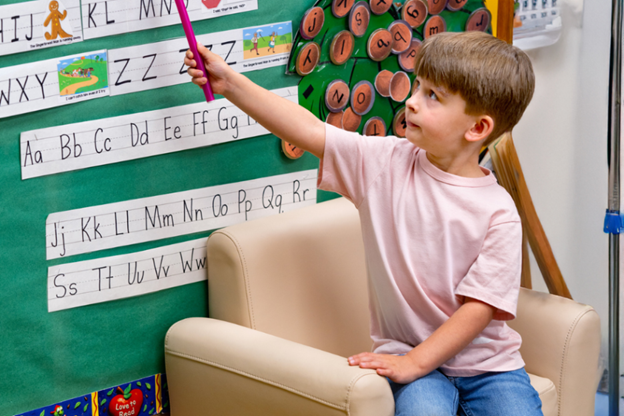
Supporting Your Child’s Transition from Pre-K to Kindergarten
Starting kindergarten is an exciting milestone—but it can also bring some big feelings for children and families alike. If your child just graduated from MECK Pre-K or another pre-K program, congratulations! You’ve already given them a strong foundation. Now it’s time to help them take the next step with confidence.
Here are a few ways to make the transition to kindergarten a little smoother for everyone:
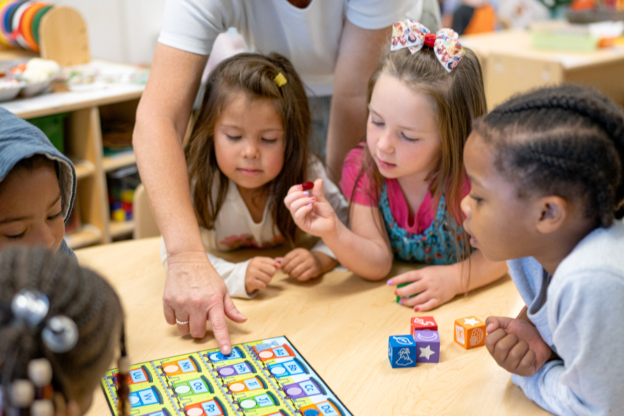
Pre-K Pays Off in Kindergarten Readiness
When it comes to preparing your child for success, the data is clear: high quality early learning makes a lasting difference.
Recent data from Charlotte-Mecklenburg Schools shows that MECK Pre-K graduates performed better on the district’s Kindergarten literacy assessments than the district average. This is powerful evidence that MECK Pre-K is doing exactly what it was designed to do—prepare children for a strong start in school and beyond.

Critical Thinking Starts Long Before Kindergarten
When you picture a Pre-K classroom, you might think of story time, playtime, and lots of colorful artwork—but did you know that pre-K students are also learning critical thinking skills? In high quality pre-K early learning programs like MECK Pre-K, children build more than just social skills—they also begin developing the ability to think critically, solve problems, and make thoughtful decisions.

A Lifetime of Growth Starts in Pre-K
Pre-K environments encourage children to explore new activities, overcome challenges, and develop independence. By engaging in tasks that require problem-solving and perseverance, children build self-esteem and a sense of accomplishment. Research indicates that early positive experiences in pre-K contribute to a child’s belief in their abilities, fostering resilience and a proactive approach to learning.

Why More Families Are Prioritizing Pre-K
In North Carolina, pre-kindergarten (pre-K) education is not mandatory. However, many parents choose to enroll their children in pre-K programs due to the significant benefits these programs offer in preparing children for future academic and social success.
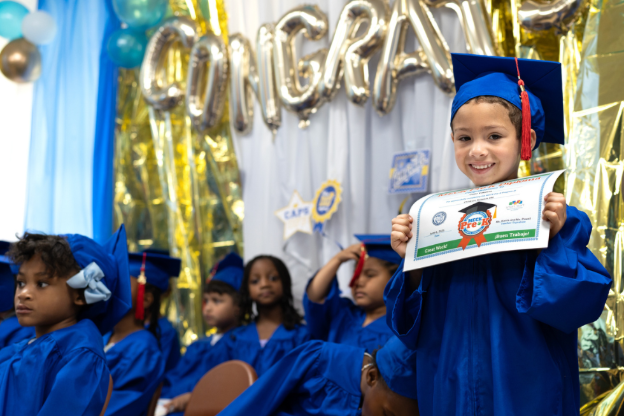
New Study Highlights Economic Benefits of Pre-K for Families
Enrolling your child in a high-quality pre-K program like MECK Pre-K offers more than just early educational benefits—it can also positively impact your family’s economic well-being. A new study from the Yale School of Management has found that access to free pre-K enables parents, especially mothers, to pursue full-time employment or higher-paying positions, leading to increased household income.
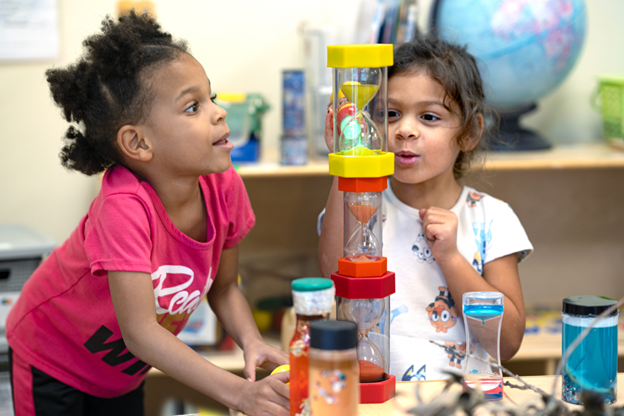
A Lifetime of Curiosity Starts in Pre-K
Have you ever walked into a room full of four-year-olds and been bombarded with questions? “Why is the sky blue? How do airplanes stay up? Can I have a snack?” If you have, then you know firsthand just how curious young children can be. A good curriculum doesn’t just tolerate this curiosity—it celebrates and builds on it to teach valuable skills and knowledge. That’s exactly what we do at MECK Pre-K!
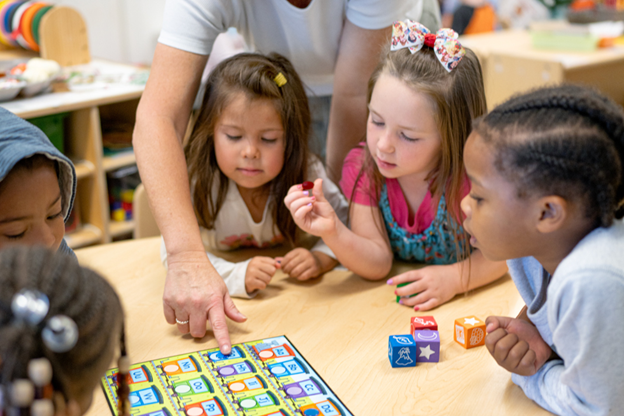
How Children Learn Math and Science in Pre-K
Do you ever wonder how teachers teach Math and Science to four-year-olds? It may seem like a challenge to introduce complex subjects to young children, but in reality, math and science are taught in ways that are engaging, hands-on, and incredibly fun.
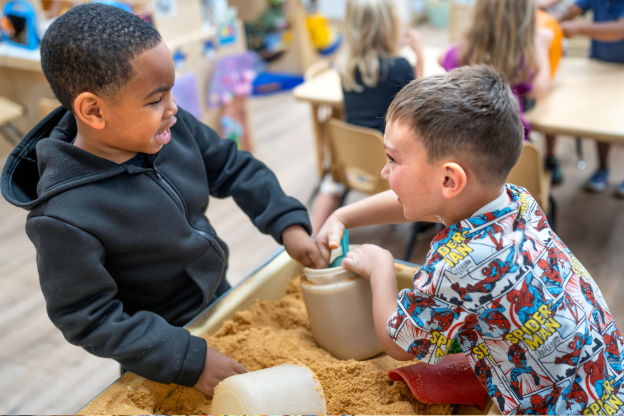
How Children Develop Social and Emotional Skills in Pre-K
For children to experience the thrive in structured educational settings, they must cultivate self-regulation—the ability to manage their emotions, behaviors, and reactions in various situations. This skill enables them to focus, persist through challenges, and engage positively with peers and educators.
Equally important is the capacity to identify and label their own feelings, which empowers them to express emotions appropriately and develop empathy toward others. Recognizing and responding to the emotions of those who may look, act, or believe differently fosters inclusivity and respect.
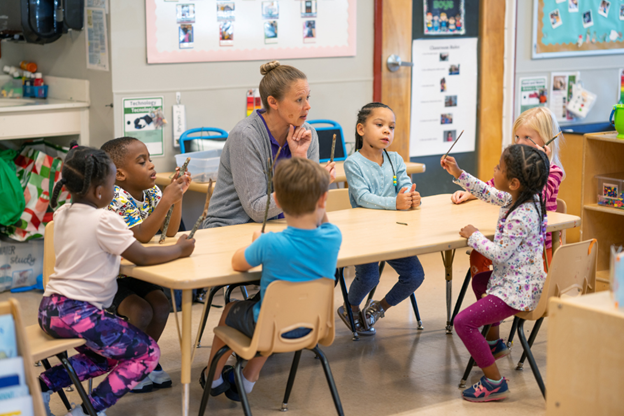
Benefits of In-Person Pre-K
As a parent, you’re always looking for the best ways to support your child’s growth and prepare them for success. One big decision is whether to send your child to pre-K or keep them at home. While homeschooling offers some flexibility, research consistently shows that high-quality in-person pre-K programs provide significant benefits for children. Here are five reasons why enrolling your child in pre-K might be the best choice for their development.
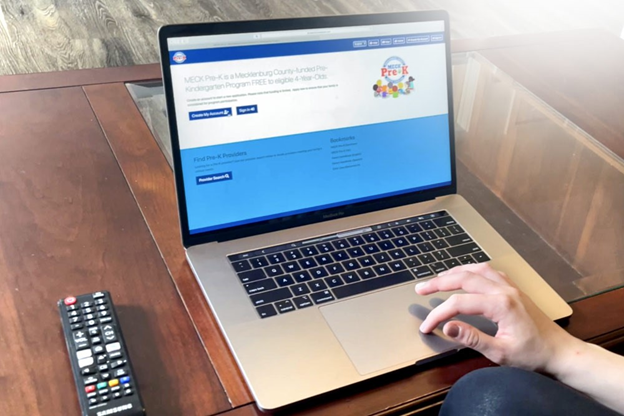
Thinking About Pre-K? Here’s What You Need to Apply
Is your little one ready for pre-K? If you are looking at public programs like MECK Pre-K in Mecklenburg County, a high-quality program that is available at no cost to families, you may have some questions. Is your child eligible? What documents are needed for the application? How can you prepare? Whether you’re applying for MECK Pre-K or a similar high-quality public pre-K program elsewhere, we’ve got you covered with the essentials.

The Importance of Behavioral Health Support in Pre-K
Today’s families face many challenges, such as economic pressures, social instability, and health concerns. As a result, the mental and emotional well-being of parents has become a public health issue that can significantly impact the development of young children.
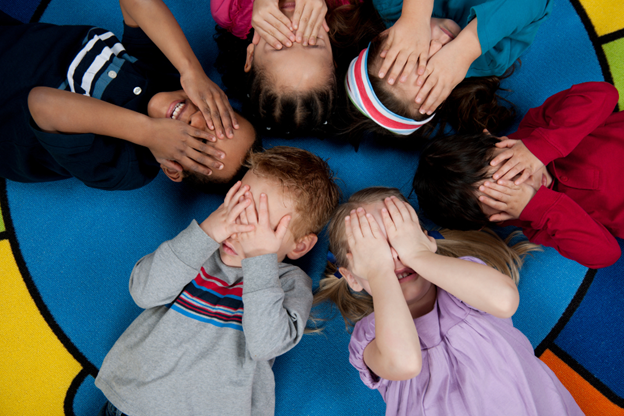
A Lifetime of Friendships Start in Pre-K
For many children, pre-K is more than just the first step in their educational journey—it’s also where some of their earliest friendships begin. With an enriched curriculum and a focus on experiential learning, high-quality pre-K programs are designed to support children in all areas of development, including the crucial skills needed for building relationships and navigating social situations.
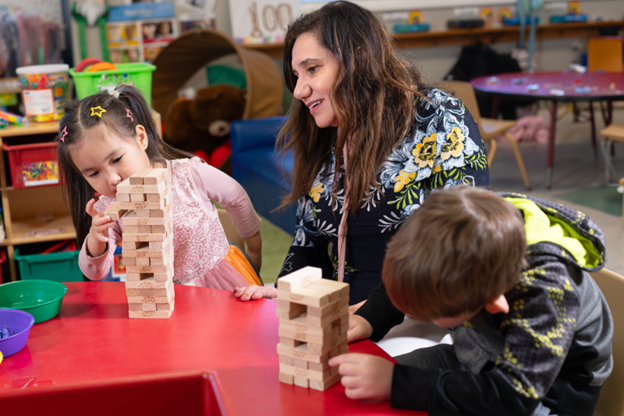
Building an Enhanced Curriculum for Young Learners
A high-quality pre-K program needs a strong curriculum that teachers can use and build upon as they interact with students in the classroom.
MECK Pre-K’s curriculum is based on The Creative Curriculum®, a research-based framework emphasizing hands-on learning, exploration, and discovery. Teachers use this curriculum and integrate additional strategies tailored to the needs of their students, designed to develop critical thinking skills and foster social-emotional growth. Combined, these elements make up the MECK Pre-K enhanced curriculum.
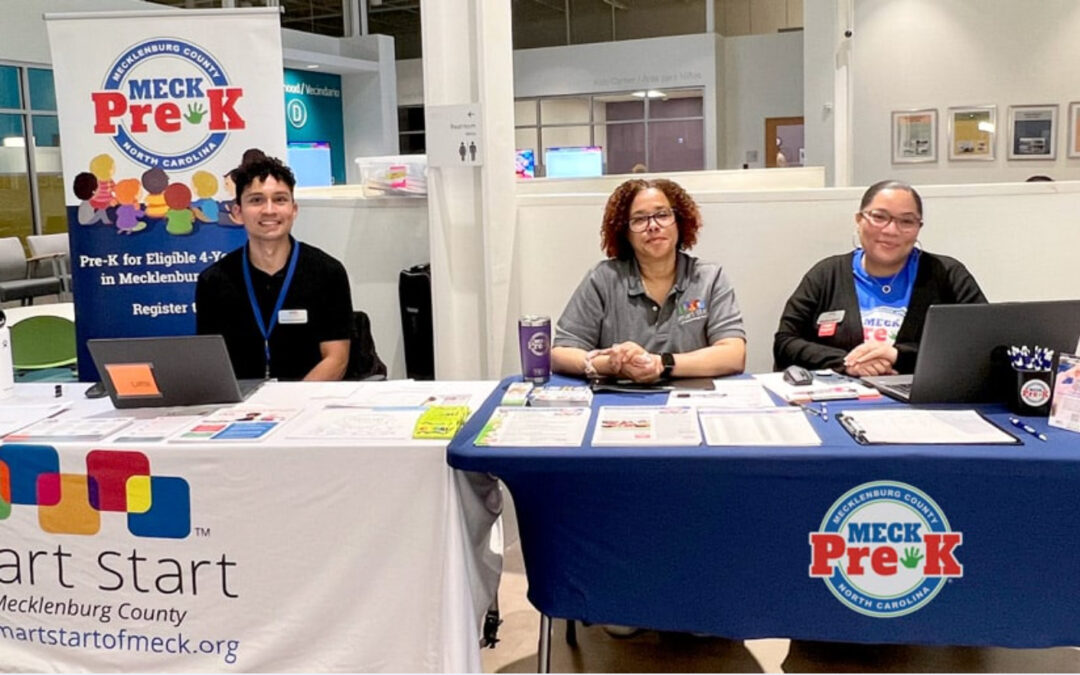
Community Outreach & MECK Pre-K
Outreach is a cornerstone for the success of a public pre-K program like MECK Pre-K. Outreach ensures equitable access, builds community trust, and maximizes program impact. Here are a few reasons why pre-K programs do outreach.
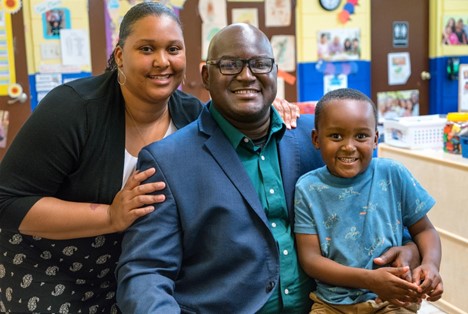
The Lasting Effects of Pre-K
We know that pre-K programs, especially those with an enriched curriculum and experiential learning, can help children in many areas, including social-emotional learning, character building, and school readiness.
But what do families say? We recently invited a family back to tell us what they have seen since their child graduated from the first year of MECK Pre-K.

The MECK Pre-K Teacher Hiring Process
You may have wondered, “How does MECK Pre-K find high quality educators?” You may have even considered a career in early education yourself. In either case, we’d like to give you the inside scoop on how dedicated teachers come to MECK Pre-K.
